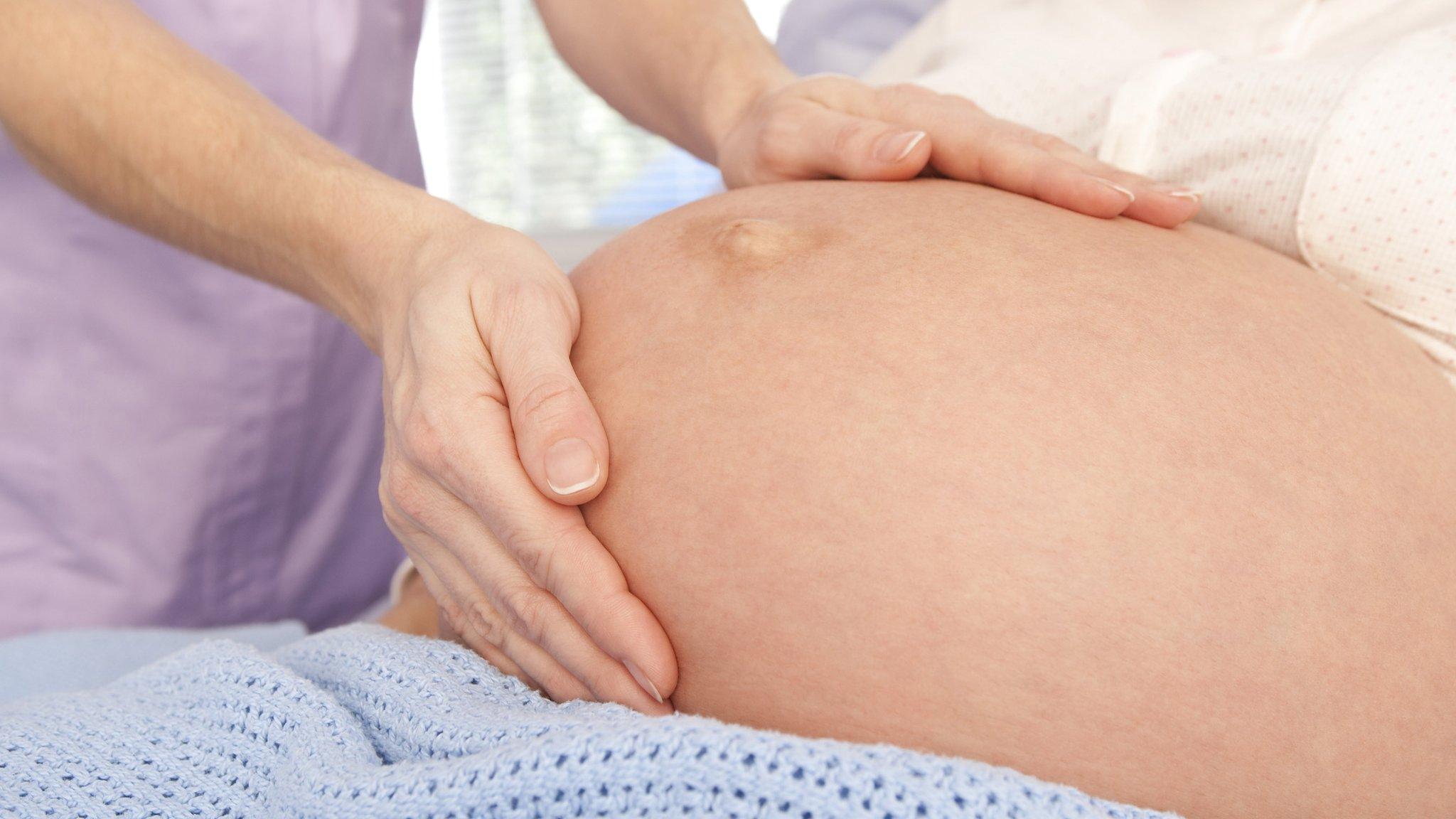Number of teens giving birth at lowest since 1946
- Published
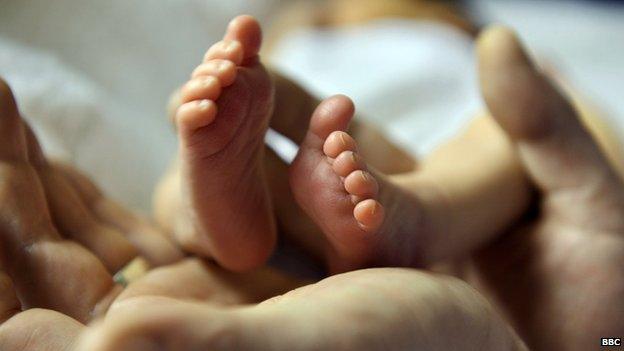
The number of teenagers giving birth in England and Wales was at its lowest level in nearly seven decades in 2014, official figures reveal.
The Office for National Statistics (ONS) said 25,977 women under 20 had babies, the fewest since 1946.
A total of 695,233 births were recorded in 2014, down 3,279 on 2013. Almost half were to unmarried mothers - the highest figure since records began.
The number of deaths in the same period - 501,424 - was down 5,366 from 2013.
The birth figures also show:
A slight rise in the proportion of births to mothers born outside the UK - from 26.5% in 2013 to 27% last year
The average age women gave birth was 30.2 years old in 2014 - the highest since records began in 1938
The number of babies born to mothers aged 40 and over (29,010) was down slightly (1%) on the recent high of 2011
Peterborough had the highest fertility rate in England and Wales
'Huge improvements'
The ONS report said: "In most developed countries women have been increasingly delaying childbearing to later in life, which has resulted in increases in the mean age at first birth and rising fertility rates among older women.
"Although fertility rates for women aged 40 and above have generally been rising fast, fertility among women in their 40s is still considerably lower than for women in their 30s. Women aged 30 to 34 currently have the highest fertility of any age group."
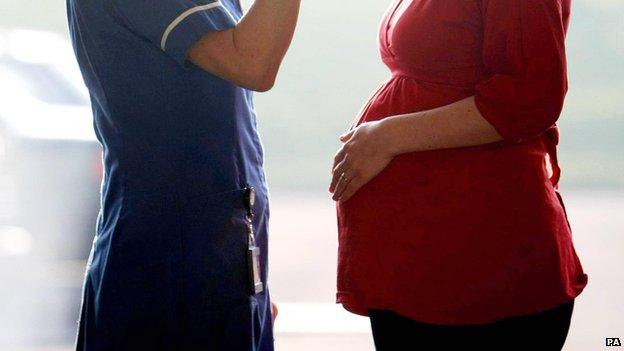
There is additional pressure on maternity services, the Royal College of Midwives said
The number of births by women under 20-years-old peaked at 45,509 in 2006. The 2014 figure was down from 29,136 the previous year.
Ann Furedi, chief executive of the British Pregnancy Advisory Service, said: "This is due in part to the huge improvements we've seen in contraception advice and services for younger women, with straightforward access to abortion services when their chosen method lets them down.
"Women are often warned about the dangers of leaving it "too late" to try for a family, and this data confirms that far from facing a fertility cliff-edge at age 35, women still have a good chance of conceiving."
'Significant pressures'
Louise Silverton, director for midwifery at the Royal College of Midwives, said: "Births are becoming more complex as the average age of mothers increases, and as climbing levels of obesity mean many women need more support and care.
"This places additional and significant pressures on maternity services.
"Midwives want to give these and all women the best levels of care."
Separate figures on death rates show cancer was the most common cause of death, accounting for 29% of registered deaths.
Middlesbrough had the highest mortality level for 2014. The ratio in the town was 137, a total of 37 points above the national level.
The figure is calculated by comparing the observed number of deaths in a population with the expected number of deaths.
- Published8 August 2013
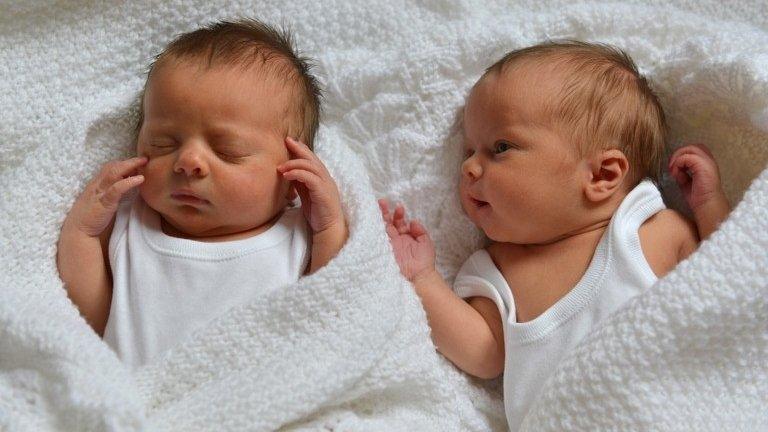
- Published7 February 2013
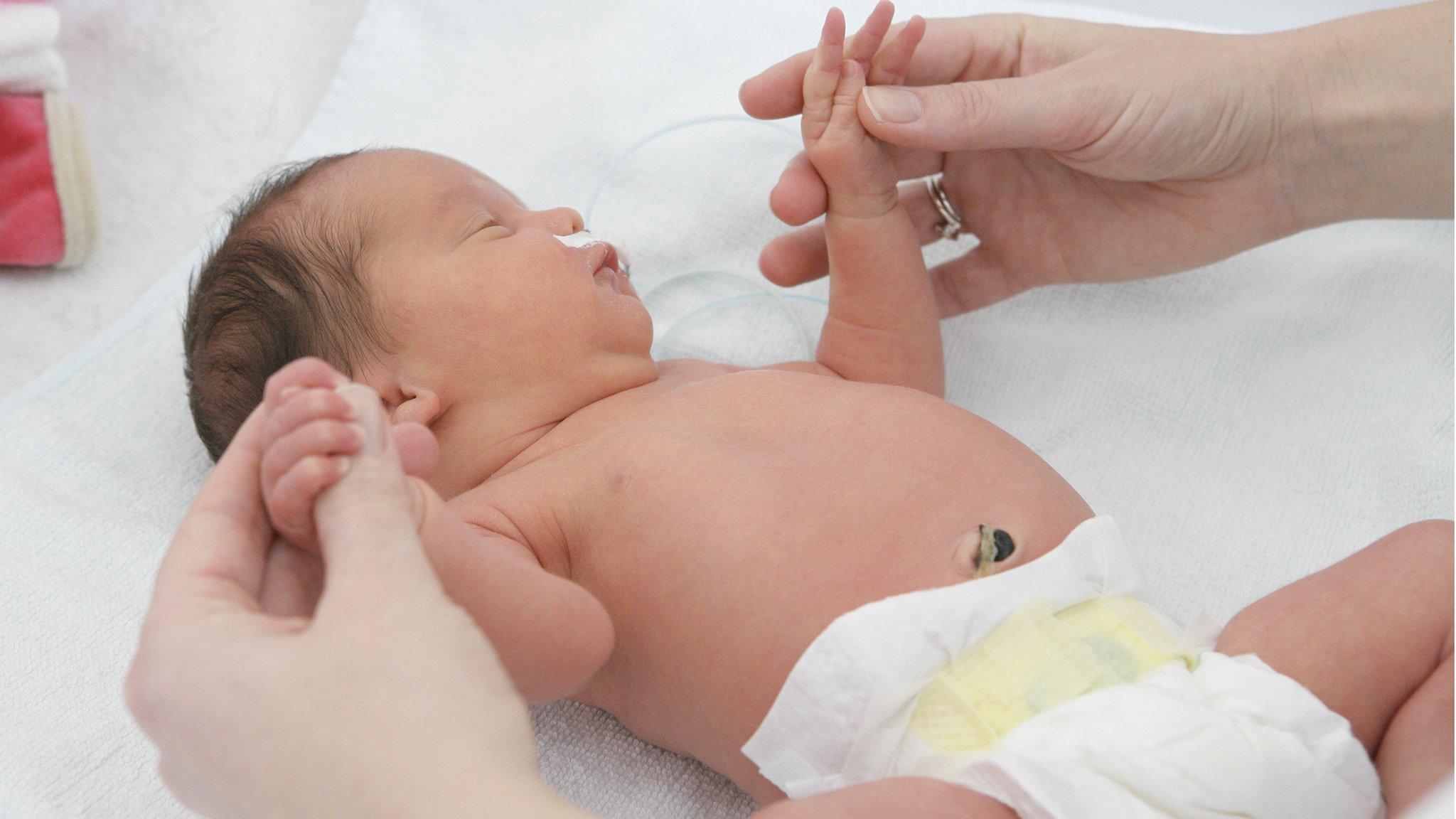
- Published21 January 2013
